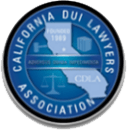FRAUD & EMBEZZLEMENT

FRAUD, EMBEZZLEMENT AND SECURITIES FRAUD
Fraud is the crime of deliberately deceiving another in order to damage them-usually to obtain property or services from him or her unjustly. Fraud can be accomplished through the aid of forged objects: the process of making, adapting, or imitating objects, statistics, or documents with the intent to deceive. Fraud can be committed through many methods, including the mail, wire, phone and the Internet.
Identity theft and identity fraud are terms used to refer to all types of crime in which someone wrongfully obtains and uses another person’s personal data in some way that involves fraud or deception, typically for economic gain.
The federal government has three general anti-fraud statutes for mail fraud, bank fraud, and wire fraud. Mail fraud is a scheme devised or intending to defraud or for obtaining property and/or money by fraudulent means, and using the mails in furtherance of that fraudulent scheme.
The federal wire fraud statute is akin to the mail fraud statute, but requires an interstate or foreign transmittal of a communication by wire, radio, or television. The federal bank fraud statute criminalizes the conduct of any party who “knowingly executes, or attempts to execute, a scheme or artifice to defraud a financial institution, by means of false or fraudulent pretenses, representations, or promises.”
Internet crime is defined as any illegal activity involving one or more components of the Internet such as websites, chat rooms and/or email. Internet crime involves the use of the Internet to communicate false or fraudulent representations to consumers. These crimes may include, but are not limited to, advance-fee schemes, non-delivery of goods and/or services, computer hacking, phishing, pharming, programming worms, viruses or employment/business opportunity schemes.
Embezzlement
Embezzlement is the fraudulent appropriation of property by a person to whom it has been entrusted. Embezzlement has also been defined as the fraudulent conversion of another’s property when the defendant had a fiduciary or other relationship of trust to the property owner.
To be guilty of the crime of embezzlement, the person must have had a relationship of trust with the victim. This is why embezzlement typically occurs in employment and corporate settings. Most of the embezzlement statutes can be found in California Penal Code §§ 503, 504, 505 and 506.
Securities Fraud – Insider Trading
Securities fraud is a crime in which laws set to protect investors and securities traders are violated by stockbrokers, analysts, brokerage firms, corporations, investment banks, and private investors. Criminal investigations can lead to imprisonment, even for first-time offenders with no criminal history.
In addition to the criminal penalties, the Securities and Exchange Commission (SEC) and National Association of Securities Dealers (NASD) may investigate and impose civil fines against corporations or individuals suspected of securities fraud.

For more information about fraud and/or embezzlement, as applied under the laws of the State of California, or to discuss your criminal charges with an experienced criminal defense attorney, please contact us immediately at: 949-497-1729 or complete our Confidential Contact Form.






